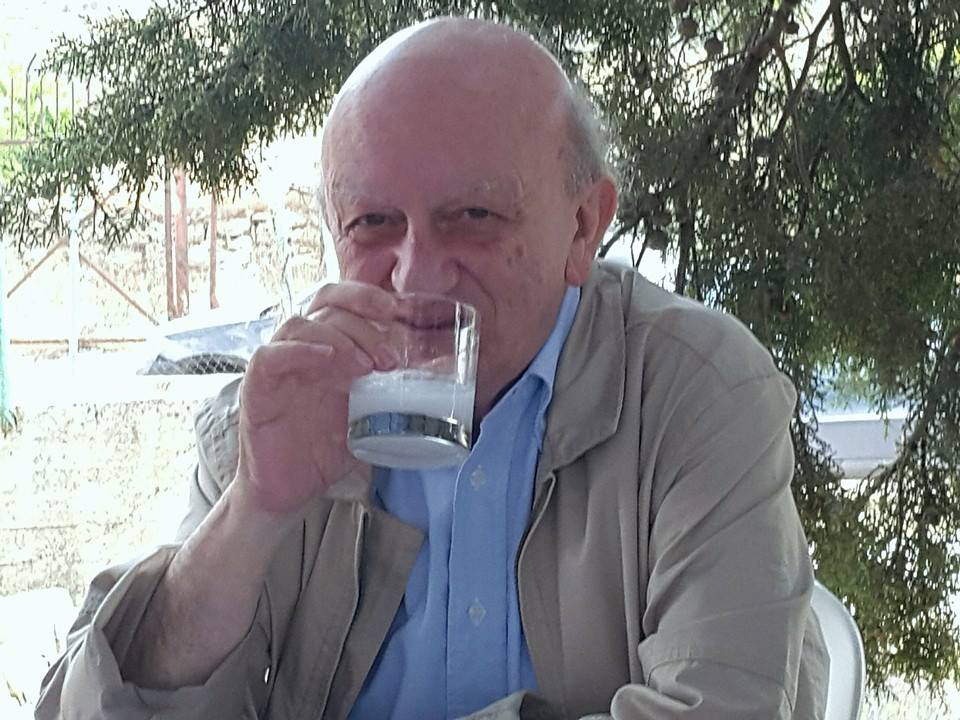Samir Franjieh’s death marks the end of a political idea
Michael Young/The National/April 20/17
When Samir Franjieh passed away in Beirut last week, much more died than the indefatigable Lebanese political figure of some five decades. Gone with him was also a vision of national politics that has lost considerable ground in his Maronite Christian community, which regards itself increasingly as being on the decline politically and demographically.
Franjieh was from a prominent political family from the northern Lebanese town of Zghorta. His late father, Hamid Franjieh, was an unsuccessful presidential candidate in 1952, while his uncle Suleiman was elected president in 1970, shifting the political power in the family to Suleiman’s side and that of his descendants.
Not that this made a great deal of difference to Samir Franjieh, who was never likely to follow a conventional path in his political career. A leftist in his younger days, he was part of one of the groups that would later coalesce into the Organisation for Communist Action in Lebanon, earning him the label of the “Red Beyk”. Always more of an intellectual than a bruiser, he was nonetheless savvy and experienced, and was remembered as a mentor by many a politician and publicist.
But Franjieh had undergone change himself over the years. From the left-wing activist, he later became an advocate of inter-religious dialogue.
Franjieh was a founder of the Permanent Congress for Lebanese Dialogue, established with Muslim clerics and public figures. This shift underlined how Franjieh, like many of those on the political left in the 1960s and 1970s who had sought to change Lebanon’s sectarian system, had later rallied to the advantages it offered in terms of sectarian coexistence.
But this return to traditionalism was not itself easy, given that his own community was shifting in the opposite direction. With the end of the Lebanese civil war in 1990, the Maronites felt increasingly marginalised in a society with a clear Muslim majority and under Syrian control. The Syrian withdrawal in 2005 gave Maronites a new confidence, but one increasingly tinged with a feeling that Lebanon’s Muslim communities were taking them for granted.
Most recently, this blend of confidence and insecurity led the two leading Christian political parties – the Free Patriotic Movement of Michel Aoun and the Lebanese Forces Party of Samir Geagea – to support a new election law for parliamentary elections scheduled for this year. While nothing is yet final, the law they are leaning towards would allow voters from each sect to choose only candidates from their own sect in a first round of polling. In that way, both parties feel, no Christians would be brought into parliament by non-Christian voters.
To Franjieh, such a scheme was anathema, alien to the coexistence for which he had long worked. “This law puts an end to the idea of living together, a reality created in Lebanon by political, economic and social exchange between the Lebanese,” he said in 2013.
It was a revealing moment, one in which the former leftist who had once condemned the Lebanese system, was now defending it against mainstream Maronite parties, many of which had formerly regarded him as a threat to the Lebanese system. The irony was hardly limited to the Maronites, however. Even someone such as the Druze leader Walid Jumblatt, a close friend of Franjieh who himself had railed against sectarianism, today is one of the system’s staunchest supporters.
There were many other paradoxes in Franjieh. In our last encounter this year, he recounted how as a young man he was being driven by taxi to the village of Ehden, the summer retreat of the inhabitants of Zghorta.
The reputation of the Zghortawis is that of a clannish society governed by the rules of vendetta, a gun always at hand, as in Sicily or Corsica. As he entered Ehden, the taxi driver remarked that its inhabitants were “animals”, not realising who he had in his car.
Franjieh laughed at the story later, perhaps amused at the contrast between his own sedate ways and his town’s ferocious reputation. And yet one could see occasional flashes of the streetwise, tough-minded northerner through his humour and sophistication. In that regard he embodied his town better than most, for Zghorta remains a multifaceted place, with a civil society as independent and lively as the one in Beirut.
Since I first met Franjieh in the early 1990s he had been struggling with the spectre of serious illness. That created the most enduring paradox in the man. He was someone who seemed to be living permanently in the shadow of premature death, yet who remained a relentless optimist.
Never complaining, never down, he seemed not to be discouraged by how heavily the odds were stacked against his ideal for Lebanon – and himself.
Many remarked how Franjieh’s death left behind an emptiness that will be difficult to fill. Certainly, the Maronite community has lost a voice of reason at a time of sectarian impetuosity. As for Lebanon, there is no doubt it has become a far less interesting place without Samir Franjieh.
**Michael Young is a writer and editor in Beirut






















